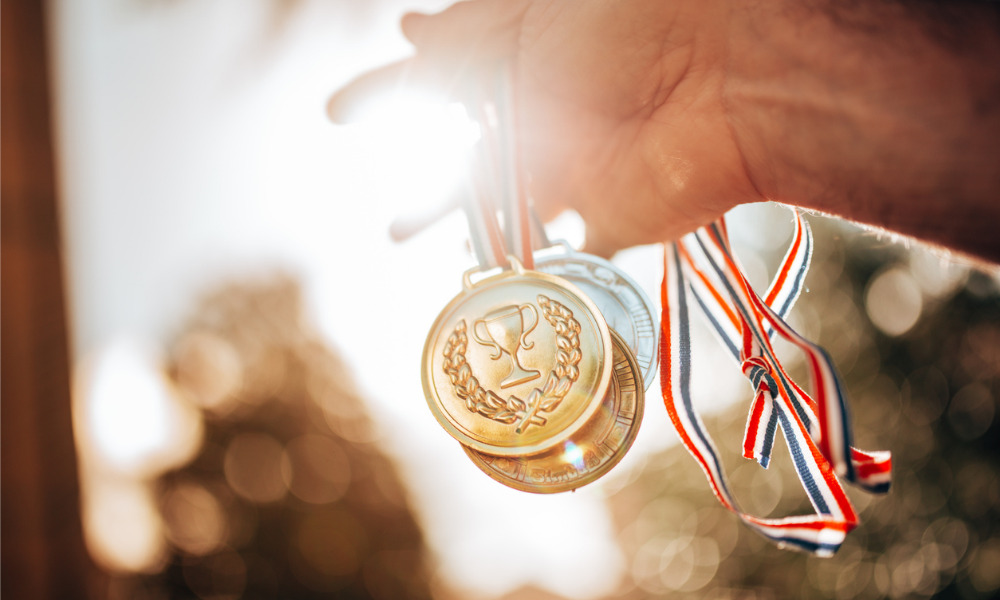'Pressure is positive. If we don't have pressure in life, sometimes we’ve become complacent and things are easy'

In light of the recent success by Canadian athletes during the 2020 Olympic games in Tokyo, how can those lessons be translated into the modern business world?
Success as an athlete begins with a clear focus and a drive to make a goal happen, says an executive coach.
“An elite athlete is someone who is very disciplined and they have to be disciplined in many ways. They have to be accountable to not only themselves, their coaches, their team members, for various things like their training regimen, their nutrition, their exercise to do to get strong in certain areas where they may be a little bit weaker than others,” says Diana Drury, director of team and executive coaching MBA programs at the Smith School of Business at Queen’s University in Kingston, Ont.
By employing that determination, business problems can be solved, says Drury and this will translate to success and better outcomes.
“As an athlete, you’ve got to go to practice. You’ve got to do your proper training, get your sleep, nutrition; you’ve got to see anybody that’s going to help you with the psychological side of the game, the mental focus. All of those are big factors to me when you are an elite athlete, just like when you have a specialty in something else: your focus is there and you stay with your goals and every day, you’ve got a plan and you execute it.”
When planning for success at work, it’s important to remember that an employer is only as good as how its employees — or team — works together to accomplish a goal, she says and how they connect with each other.
“We all have vulnerabilities and we need to recognize those through sharing communicating and then planning for them so that when come to that crossroad or a gap that we have within our team, we can predict when it’s coming and be able to cover that gap and be prepared for it. We talk a lot about this in business is the openness to being yourself, bringing your best self to the table but being vulnerable, stepping out of your comfort zone to try new things and we all learn by failure,” says Drury, who also has experience coaching athletes as well as executives.
Recognizing that a good team is made up of different types of people can also breed success, according to Drury.
“All of us bring different things to the table, the way we’ve been brought up through our cultures, our value systems, the experiences in life we’ve had; to me, that’s another big contributing factor is that we learn from our experiences.”
The benefits of pressure
Successfully dealing with tension — as many athletes do on a regular basis — is another way that leaders can learn from them, says Drury.
“Pressure is positive. If we don’t have pressure in life, sometimes we’ve become complacent and things are easy. If we know there’s going to be pressure and we put ourselves in those situations and we prepare for it,” that’s when goals are achieved.

Diana Drury
Most, if not all, athletes practice relentlessly and imagine various real-world scenarios, so when they come up, they have been discussed and prepared for, says Drury.
“If we look at that and we can prepare for it, then when it comes, yes, there’s still pressure there but it’s not going to put us over the edge. We know that in the moment, we’ve prepared for this.”
“[It’s about] having those nerves and in the world of business too when you’ve got a big decision to make, pressure and adrenaline does add value, it does make it more exciting, it makes it more interesting. I often find we make better decisions when we’re in those positions that are adding pressure, especially if we’ve rehearsed it or we’ve gone through it in our heads that we know what we’re going to do and we’ve got that confidence,” she says.
Role of coaching
This is accomplished through coaches who run the practices but it can also work on the world of business, according to Drury.
“We have to give the people that work for us the skills, the tools, the coaching and the support; they need to do the job at the level that they’re expected to do and that’s only through coaching and providing that mentoring, the ability to have them come to talk to you to work through things [they] share with you. A good coach is someone that doesn’t give the answers or a good boss doesn’t give the answers, they give you all the tools and they give you the tips and basically they instil what you need to do.”
By regularly offering coaching and mentoring opportunities to leaders, HR can strengthen the team, she says.
“In HR, there needs to be options like available resources for people to go to having coaching options, executive coaching, that one-on-one personal growth and development opportunity — but HR has a duty to have executive coaches on a roster that people can go to and be supported through that and that it’s financially paid for.”
Recently we asked four important questions about coaching and found that professional development will be more popular post-COVID.




